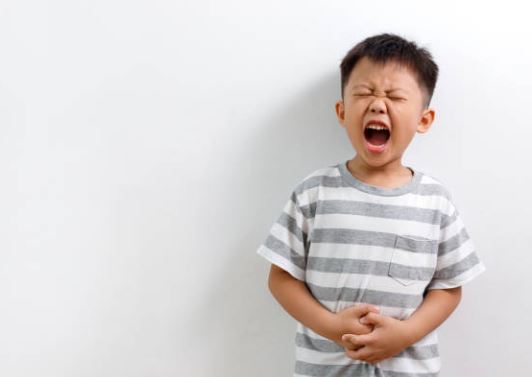It is important to note that before giving any medication for diarrhea to a child, it is best to consult a doctor or pediatrician first. This is because the underlying cause of diarrhea needs to be determined and addressed first.
In some cases, diarrhea may be caused by an infection, and antibiotics or other medications may be needed to treat the underlying infection. In other cases, the cause may be related to dietary issues or other underlying medical conditions, which may require a different approach to treatment.
If a doctor or pediatrician recommends medication to manage diarrhea in a child, some of the commonly used medicines may include.
Oral rehydration solutions (ORS) – ORS is not a medicine, but it is a specially formulated solution that helps replace lost fluids and electrolytes in the body. ORS is typically used for children with mild to moderate diarrhea to help prevent dehydration.
Zinc supplements – Zinc supplements are often recommended for children with acute diarrhea to help reduce the duration and severity of the symptoms.
Probiotics – Probiotics are beneficial bacteria that are found in some foods and supplements. They can help restore the natural balance of bacteria in the gut and may be helpful in managing certain types of diarrhea.
Antimotility agents – Antimotility agents like loperamide may be recommended in certain cases of diarrhea to help reduce the frequency and severity of the symptoms.
It is important to always follow the recommended dosage and instructions when giving medication to a child, and to seek medical advice if there are any concerns or questions.
Example of Antibiotic for Diarrhea for kids
Antibiotics are not always necessary for treating diarrhea in children. In fact, many cases of diarrhea are caused by viruses or other non-bacterial causes, which means that antibiotics would not be effective. In cases where the diarrhea is caused by a bacterial infection, antibiotics may be necessary to treat the underlying infection.
However, it is important to note that antibiotics should only be used under the guidance of a doctor or pediatrician, as the wrong type of antibiotic or incorrect dosage can be ineffective or even harmful.
Some of the antibiotics that may be used to treat diarrhea in children include:
Azithromycin
Azithromycin is an antibiotic that is often used to treat bacterial infections that can cause diarrhea, such as Campylobacter and Salmonella.
Ciprofloxacin
Ciprofloxacin is another antibiotic that may be used to treat bacterial infections that cause diarrhea. It is generally reserved for cases where other antibiotics have been ineffective.
Metronidazole
Metronidazole is an antibiotic that is commonly used to treat infections caused by a parasite called Giardia, which can cause diarrhea in children.
It is important to note that antibiotics should only be used under the guidance of a doctor or pediatrician, and that they may not always be necessary or effective for treating diarrhea in children. In many cases, treatment may involve addressing the underlying cause of the diarrhea through dietary changes, oral rehydration therapy, or other non-antibiotic measures.
Example of Antimotility agents Diarrhea for kids
Antimotility agents are medications that can be used to treat diarrhea by slowing down the movement of the bowel and reducing the frequency of bowel movements. However, it is important to note that these medications should only be used under the guidance of a doctor or pediatrician, as they can have side effects and may not be appropriate for all children.
Some examples of antimotility agents that may be used to treat diarrhea in children include:
Loperamide
Loperamide is an over-the-counter medication that is commonly used to treat diarrhea in both children and adults. It works by slowing down the movement of the bowel, which can reduce the frequency of bowel movements and help to reduce symptoms of diarrhea.
Diphenoxylate
Diphenoxylate is a prescription medication that is sometimes used to treat diarrhea in children. It works by slowing down the movement of the bowel and reducing the frequency of bowel movements.
Atropine/diphenoxylate
This combination medication contains both atropine and diphenoxylate and can be used to treat moderate to severe diarrhea in children. The atropine helps to reduce some of the side effects of diphenoxylate, such as dizziness and drowsiness.
It is important to note that these medications should only be used under the guidance of a doctor or pediatrician, as they can have side effects and may not be appropriate for all children. In many cases, treatment may involve addressing the underlying cause of the diarrhea through dietary changes, oral rehydration therapy, or other measures.
FAQS – Diarrhea Symptoms for Kids
The symptoms of diarrhea in children may vary depending on the underlying cause and the severity of the condition. Some of the common symptoms of diarrhea in kids include.
Frequent loose or watery stools
Children with diarrhea may have bowel movements more frequently than usual, and the stools may be loose or watery.
Abdominal cramps
Kids with diarrhea may experience abdominal cramps or pain, which can be mild or severe.
Nausea and vomiting
Some children with diarrhea may also experience nausea and vomiting, which can further exacerbate dehydration.
Fever
A fever is a common symptom of many infections that can cause diarrhea, and children with diarrhea may have a mild or high-grade fever.
Dehydration
Diarrhea can cause dehydration, which can lead to symptoms such as dry mouth, decreased urination, dizziness, and lethargy.
Loss of appetite
Children with diarrhea may lose their appetite and not feel like eating.
Blood in stool
In some cases, children with diarrhea may pass stools that contain blood or mucus.
If your child is experiencing any of these symptoms, it is important to monitor their condition closely and seek medical attention if there are any concerns or signs of dehydration. Dehydration can be particularly dangerous for young children, so it is important to ensure that they are staying well-hydrated and receiving appropriate medical care if necessary.




